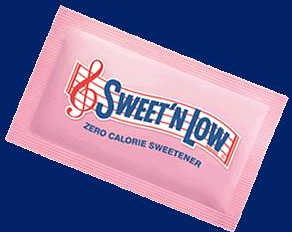Further Inspection: Artificial Sweeteners

Artificial sweeteners in the past few years have been claimed in the media to promote weight gain. This idea stems deeply from observational research that find correlations between overweight and obese people and their diet beverage consumption. (1)
Researchers have hypothesized from these observations that a dissociation of calories from sweetness can disrupt physiological processes that regulate energy balance, contributing to obesity and other adverse health outcomes. (2)
BUT being overweight or obese can also drive people to consume more diet foods and beverages, rather than the other way around.
This is why controlled studies shine in terms of establishing ‘TRUE’ causality.
A recent meta-analysis by Miller and Perez examined 15 RCTs and 9 prospective cohort studies.
They concluded that replacing regular-calorie sweeteners with artificial sweeteners resulted in DECREASED bodyweight, fat mass, and waist circumference, and may be a viable tool for sustaining LONG-TERM dietary compliance. (3)
OTHER CLAIMS:
Artificial sweeteners have also been accused of being potential agents in the development of impaired glucose tolerance by altering the intestinal microbiota. (4)
HOWEVER, a closer inspection of their work showed that:
– the study only lasted 7-days
– had only 7 subjects
– and involved a daily dose of saccharin only attainable from the equivalent of four 12-oz cans of Tab or 10 packets of Sweet’N Low
Alan Aragon had this to say in his review of the study
(August 2014 issue of AARR):
“The collective body of evidence clearly does not support the claim that artificial sweeteners cause or promote deleterious effects on blood glucose control in humans. In fact, they have repeatedly been demonstrated as inert in this regard—in both diabetic and normoglycemic populations. The glucose control impairment seen by Suez et al was within a very short trial using artificially high doses of saccharin, a sweetener that’s nearly extinct as a primary sweetener in the diet food & beverage industry.”
References:
1. Bleich SN, Wolfson JA, Vine S, Wang YC. Diet-beverage consumption and caloric intake among US adults, overall and by body weight. Am J Public Health. 2014 Mar;104(3):e72-8.
2. Pepino MY, Bourne C. Non-nutritive sweeteners, energy balance, and glucose homeostasis. Curr Opin Clin Nutr Metab Care. 2011 Jul;14(4):391-5.
3. Miller PE, Perez V. Low-calorie sweeteners and body weight and composition: a meta-analysis of randomized controlled trials and prospective cohort studies. Am J Clin Nutr. 2014 Sep;100(3):765-77.
4. Suez J, Korem T, Zeevi D, Zilberman-Schapira G, Thaiss CA, Maza O, Israeli D, Zmora N, Gilad S, Weinberger A, Kuperman Y, Harmelin A, Kolodkin-Gal I, Shapiro H, Halpern Z, Segal E, Elinav E. Artificial sweeteners induce glucose intolerance by altering the gut microbiota. Nature. 2014 Oct 9;514(7521):181-6.
